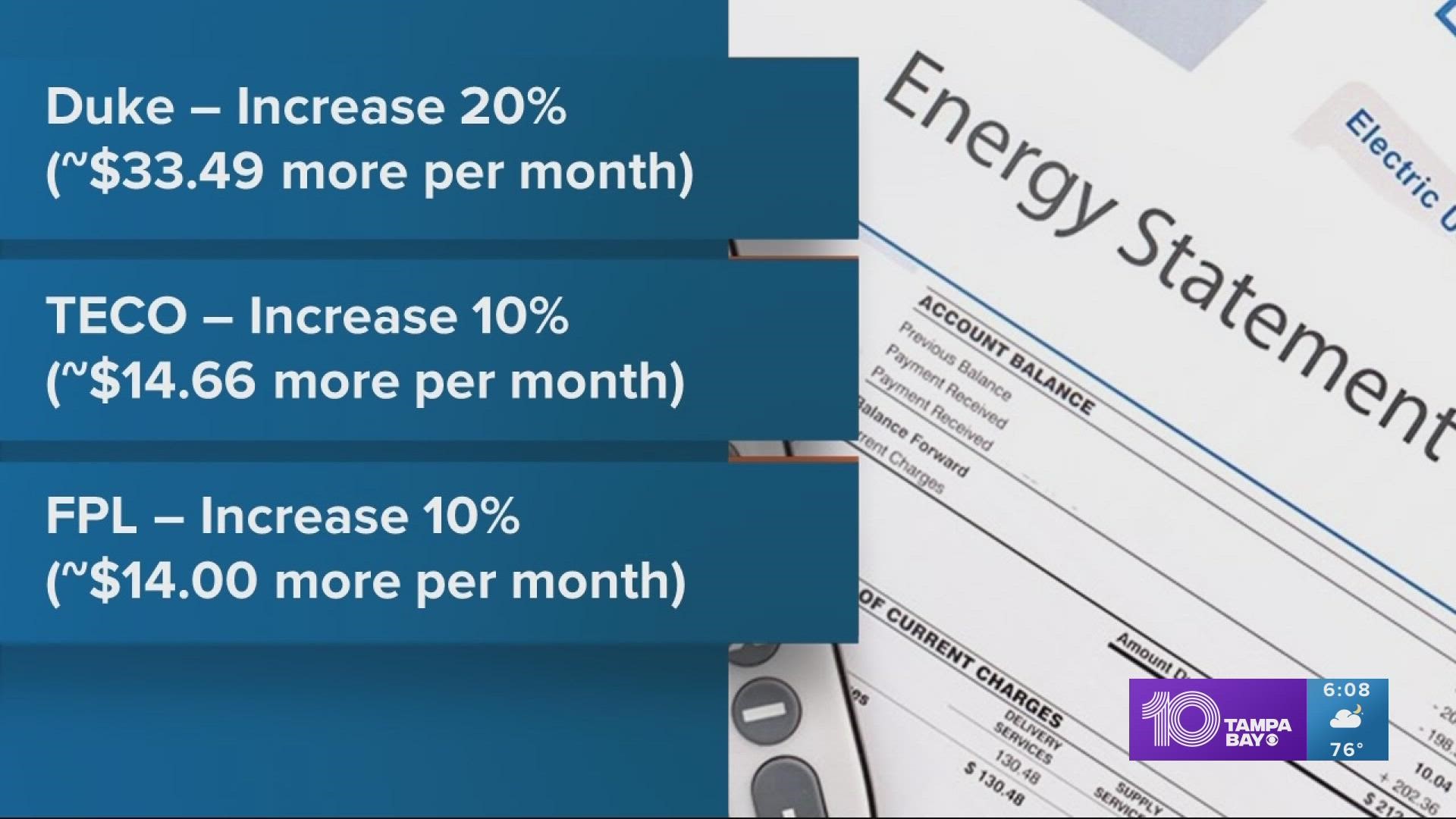TAMPA, Fla. — Floridians could be hit with higher electric bills as soon as April as power companies work to make up costs from last year's hurricanes.
Three of the state's largest power companies — Tampa Electric (TECO), Florida Power & Light (FPL) and Duke Energy — filed rate increases with the Florida Public Service Commission on Monday.
According to the companies, storm restoration costs from hurricanes Ian and Nicole and unpredictable natural gas prices are to blame.
If the proposed plans are approved, TECO and FPL customers' electric bills will increase by about 10% or around $14 per 1,000 kilowatt-hours. So, if you currently pay $146.72 per month, you'll pay around $161.38 per month by April 2023.
Duke Energy customers' electric bills would see a 20% monthly increase or $33.49 per 1,000 kilowatt-hours. Increases would be even higher for commercial and industrial customers.
“We’re here to help. We understand customers continue to face increased financial pressures due to inflation and other economic stress,” said Melissa Seixas, Duke Energy Florida state president, in a statement. “We are connecting customers to available assistance and providing energy-saving tools and programs to help manage their bills and lessen the impact.”
In a news release, Duke said it's working to recover about $795 million in net fuel costs and $442.1 million for storm restoration work.
TECO said spreading out these increases over several months will help "ease the transition." To reduce the impact on customers, the company requested fuel costs spread over 21 months and storm costs spread over 12 months.
"Although TECO paid fuel and storm expenses upfront, Tampa Electric waited until early this year to make this request, to help mitigate the costs, as natural gas prices dropped and began to stabilize," TECO said in a news release.
While they wait on a decision from state regulators, TECO, FPL and Duke are encouraging customers to practice energy-saving tips to help ease the financial strain.
They include:
- changing your A/C filter once a month,
- lowering the temperature on your water heater,
- turning off ceiling fans when you're not in the room,
- limiting the time you run your pool pump,
- replacing old showerheads with water-efficient showerheads,
- adjusting the water level on your washing machine
- and using the auto-sensor function on your dryer.

